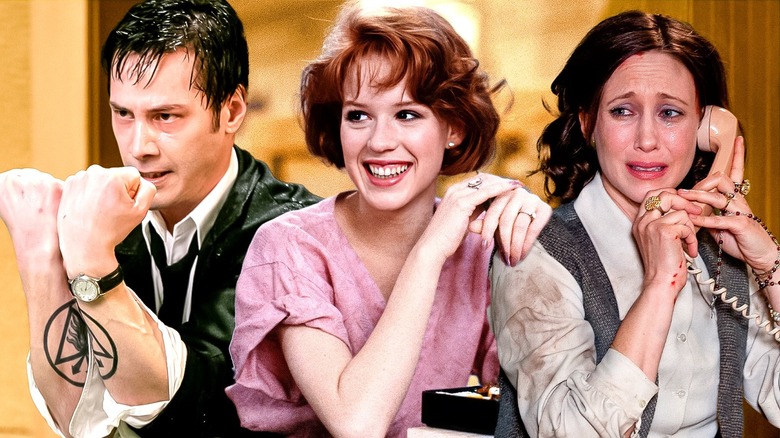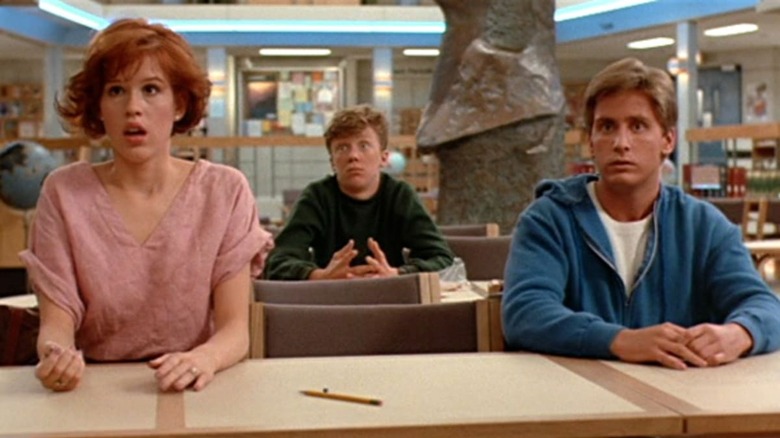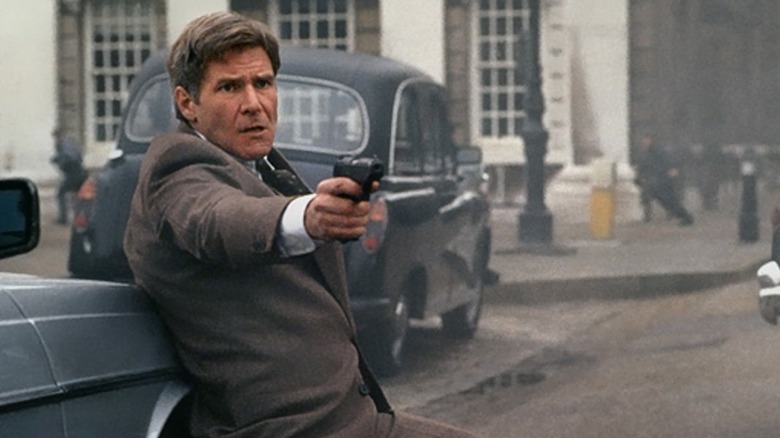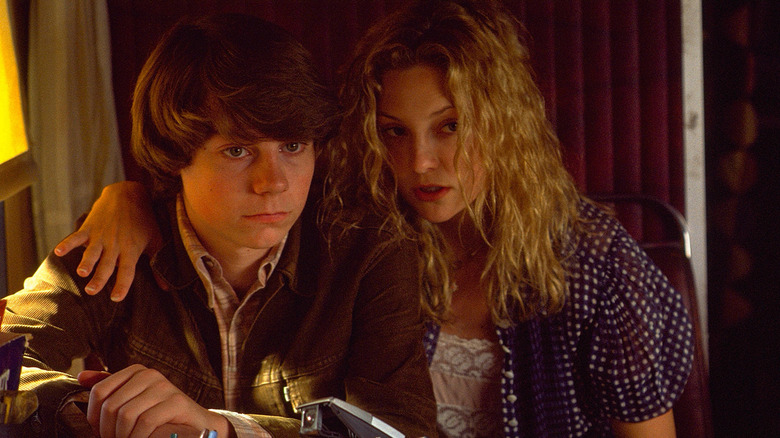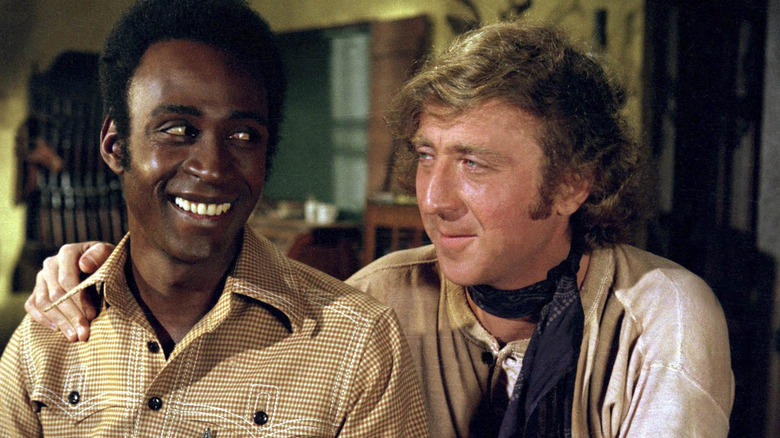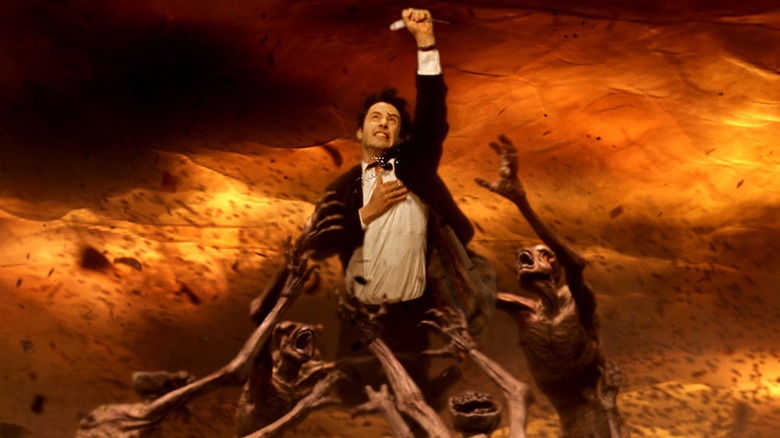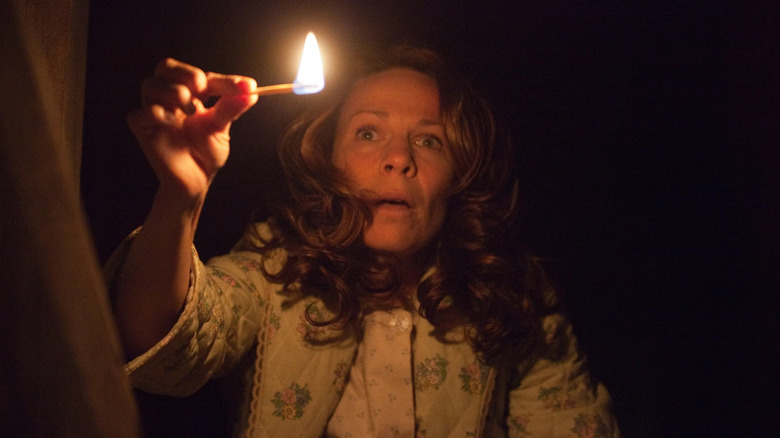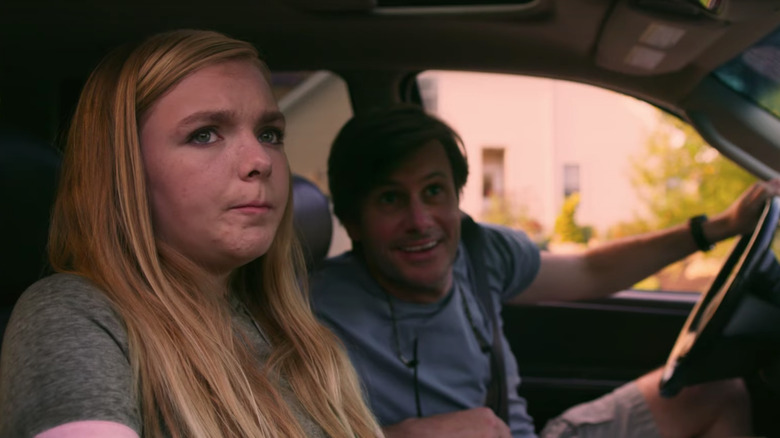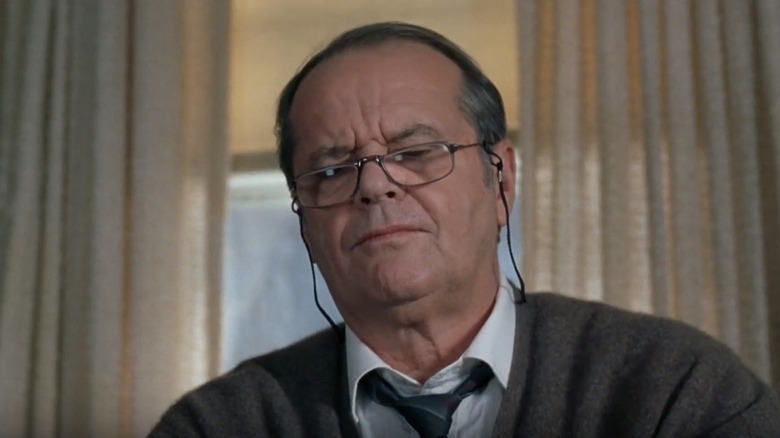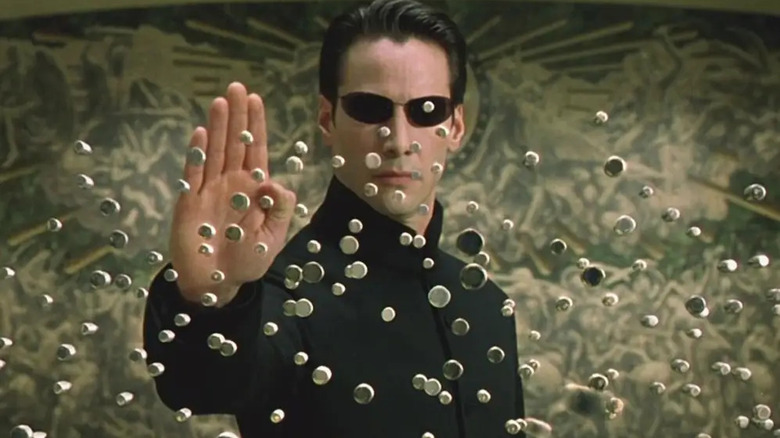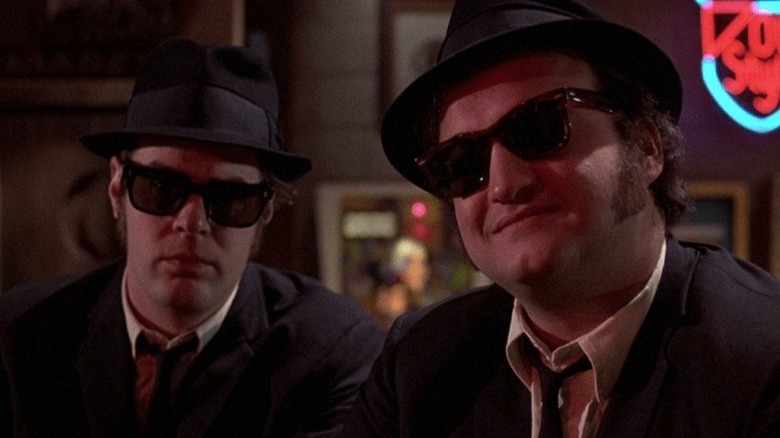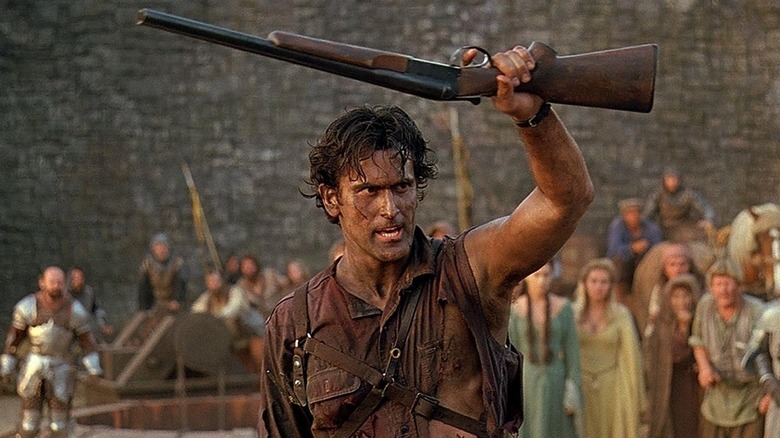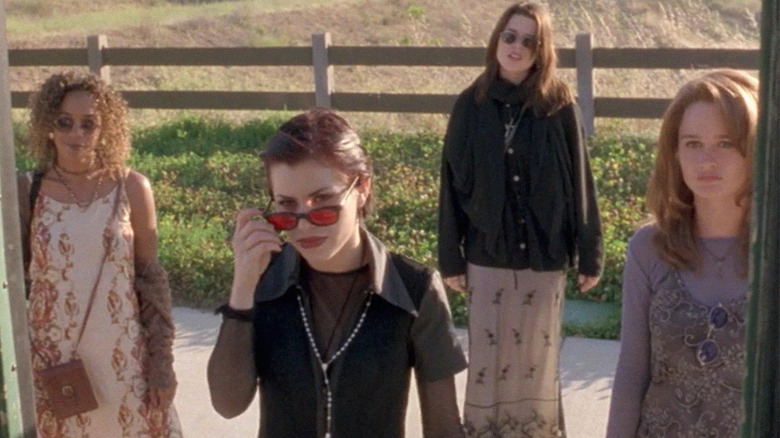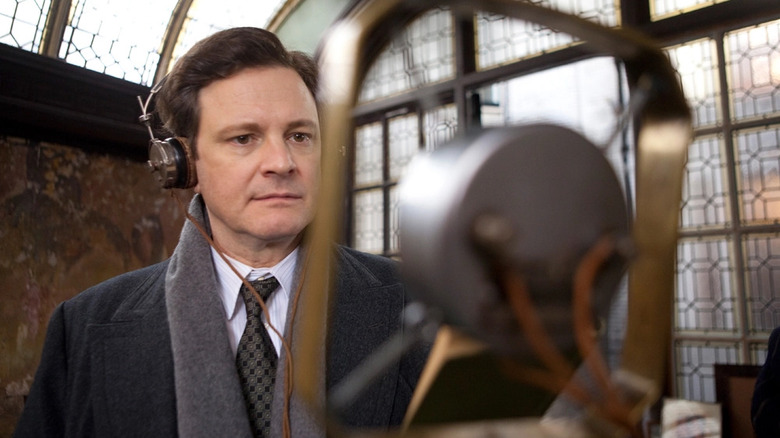R-Rated Movies That Should Be Rated PG-13
From "G" to "NC-17," movie ratings are an important part of helping moviegoers decide which films suit their tastes. For decades, it's been the Motion Picture Association of America (or MPAA for short) that reviews and rates movies based on a film's content, using their own internal guidelines to settle on a final label. This typically takes into account elements of violence, sex, drug use, profanity, and even the film's larger themes and overall tone.
But the MPAA doesn't always get it right. Some movies have been stuck with an R-rating because they contain violent action, but aren't really as graphic as they might seem. Others may receive the harsh classification because of swear words or sexual content that isn't actually all that extreme, while some older movies might have gotten the dreaded "R" because of outdated values. The fear of course is that by getting such a strict rating, movies might be overlooked by audiences who feared what they contained, squashing their potential to become an even bigger hit.
If you've ever watched a movie that was rated R and wondered why, you're not alone, because we've found flicks that might be cause to doubt the official rating system. So settle down with some popcorn as we take a look back at some R-rated movies that could probably have been PG-13.
The Breakfast Club
Starring the so-called "Brat Pack," – a collection of hot young stars that included Anthony Michael Hall, Molly Ringwald, Emilio Estevez, and Ally Sheedy – the 1985 teen drama, "The Breakfast Club," is written and directed by John Hughes. Set at a fictional high school, the story revolves around a group of students from different walks of life who seemingly share nothing in common other than the fact that they've all been assigned Saturday morning detention on the same day. There we meet angry malcontent, John (Judd Nelson), a morose recluse, Allison (Sheedy), a cocky jock, Andrew (Estevez), awkward and nerdy Brian (Hall), and snobby Claire (Ringwald).
Over the course of the film, the five misfits muse over the struggles in their vastly different lives, and they each come to understand each other a little better. It's a tender, heartfelt coming-of-age story with few equals in its day. Sadly, it earned itself an R-rating thanks to its frank discussion of sex and drugs, some crude language, plus a scene where they get high on marijuana together. But while edgy for the '80s, "The Breakfast Club" isn't actually all that explicit, with anything adult employing suggestive euphemisms more often than not. And while some mild drug use may have riled parents in 1985, it hardly seems all that R-rated today, where marijuana in particular is largely legalized.
Patriot Games
When one conjures up images of early '90s R-rated action flicks, it's likely to bring to mind classics like "Total Recall" and "Terminator 2," which were full of gut-busting violence. What you might not think of, however, is the 1992 film, "Patriot Games," starring Harrison Ford. Based on the novel by Tom Clancy, it's the second film to follow CIA analyst, Jack Ryan, who is the target of a rogue IRA faction after breaking up an assassination plot while vacationing with his family in England. Co-starring James Earl Jones, Samuel L. Jackson, and Sean Bean, it's as tense and nail-biting a thriller as you'll find.
According to the MPAA though, it's also an adult-oriented movie, rated R for "strong sexuality, and for language and violence." But watch the film and that explanation may have you scratching your head. Because not only does the lone sex scene feature no nudity and not even any sex, the violence isn't terribly graphic, and a lot of it happens off-screen. In fact, what violent action there is remains fairly tame when stacked up against the likes of bigger, more blood-spurting classics of the day. Perhaps it was the sheer body count that earned it the tougher rating, as plenty of bodies are dropped, but "Patriot Games" definitely doesn't feel like the bloodbath you'd expect from an R-rated action movie from 1992.
Almost Famous
Written and directed by Cameron Crowe, "Almost Famous" is inspired by the filmmaker's own unique life story, paralleling his days as a teen journalist for Rolling Stone. The film follows 15-year-old William Miller, who writes for a major music magazine and worms his way into the inner circle of an up-and-coming rock group called Stillwater. Along with alluring bohemian groupie Penny Lane, William joins the band on tour, going on a journey of self-discovery as he learns about life, love, and friendship.
A touching story of a young man looking to find his own path, "Almost Famous" got its R-rating thanks to some of the usual swear words and drug use. What might have crossed the line, however, was a single partial nude scene where Penny Lane is briefly seen dancing with her shirt hanging open, which doesn't do it any favors. But take that out and what you're left with is a rather subdued story — where most of the sex and drugs are only implied — and with none of the raucous antics you might expect from a more wild and crazy rock n' roll biopic. Even online parental reviews of the film note just how inoffensive the movie really is and how perfect it is for older teens. Given its poignant story of youthful rebellion and the moral lessons it peddles, it seems almost a crime that its target audience was kept out of theaters by its R-rating.
Blazing Saddles
An absolutely iconic buddy comedy, "Blazing Saddles" is a 1974 Western classic starring Gene Wilder and Cleavon Little as a pair of mismatched partners in the Old West. Written and directed by Mel Brooks, it puts Little into the role of Bart, a black laborer who becomes the new sheriff of Rock Ridge. But Bart is only given the job because the corrupt governor hopes it will prompt the townsfolk to flee, allowing a railroad to dismantle the town. When Bart gets wind of the plan, though, he recruits local outlaw Jim (Wilder) to help him stop the governor's dastardly scheme.
A major hit, "Blazing Saddles" pulled in a whopping $119 million at the box office thanks to the chemistry of its star pair and a sidesplitting script from Brooks. A wildly successful film among critics too, it's been hailed as one of the best comedies of all time and even earned itself four stars from crotchety critic, Roger Ebert. But despite its success, we're forced to wonder how much more popular it might have been had it not received an R-rating, mostly because it doesn't deserve it. Sure, in 1974, some of the more vulgar jokes may have offended uptight types. Looking back, though, it might even earn a PG rating today, as much of what crossed the line at the time is more veiled humor and innuendo than anything explicit.
Constantine
When it comes to action movies, it can be fairly easy for a tame flick to just barely cross the line and earn an R-rating. Whether it's because of a deadly shootout or a bloody stabbing, a single violent beat can change the entire rating. But in the case of "Constantine," we don't suspect it was the violence, blood, or death that got it a stricter label, but its overall tone and dark themes. The film centers on the eponymous John Constantine (Keanu Reeves), who has been sent to Hell, but is back on Earth where he fights for righteousness — hunting demons and fallen angels — in an effort to stave off his soul's delivery to Satan.
The movie has some fantasy violence, and there are a few grim moments — including a scene where Constantine cuts his own forearms with a shard of glass — but the overall tone is often rather tongue-in-cheek. Nevertheless, it's the demonic nature of the story that is most likely to blame for its harsh rating, as the MPAA handed it an R rating. They cautioned viewers that the film contained "violence and demonic images," but the violence hardly seems any worse than your standard PG-13 blockbuster. And while hellish visuals may be cause for concern to more devout religious folk, it might not even register as harsh for anyone else.
The Conjuring
It's certainly not a surprise to learn that one of the most popular horror movies of the 2010s is rated R. After all, horror movies are famous for their shocking imagery, bloody kills, and terrifying — almost nightmarish — sequences that can leave audiences shaken and disturbed. But when you actually sit down to watch "The Conjuring," the 2013 ghost story by director James Wan, you might be surprised to find it's really not that shocking at all.
The film tells the story of a pair of supernatural experts played by Patrick Wilson and Vera Farmiga, who are brought in to investigate a potential haunting at a remote farmhouse. Given the R-rating by the MPAA for "terror," it seems it was the overall spooky vibe that rankled the labeling agency rather than any explicit bloodshed or even disturbing visuals. Because frankly, the film isn't really all that violent, and according to Wan, that was by design, as he'd held out hope of the film making it out with a PG-13 rating, in an effort to attract a wider audience.
But as the film's producer Walter Hamada told fans during an appearance at WonderCon not long before its release, the MPAA had told him that they were stuck with a stricter rating. To put it simply, the film was "just so scary. [There are] no specific scenes or tone you could take out to get it PG-13."
Eighth Grade
It seems like critically acclaimed coming-of-age stories can often fall victim to the R-rating despite it not being warranted. That might be because being earnest and true to life sometimes means showing young, often underage characters acting crudely and vulgar, or engaging in taboo activities like sex and drugs as they navigate their way into adulthood. Such is the case with comedian Bo Burnham's full-length directorial debut, "Eighth Grade," which introduces us to Kayla Day (Elsie Fisher), an ordinary middle schooler struggling with stress at school and at home as she prepares to graduate the titular year of school.
Aimed at an audience of teens, the film is a tender and heartbreaking look at adolescence and was praised by critics and young audiences for its realistic depiction of growing up in modern America. Unfortunately, thanks to some pervasive profanity, and a couple of suggestive moments, the film garnered an R-rating, preventing kids who might relate to it from seeing it in the theater on their own. Of course, this effectively cut them out from seeing it at all, as we're not sure any 15-year-old wants to be going to the movies with their parents.
About Schmidt
Written and directed by Alexander Payne ("Sideways"), the 2002 drama, "About Schmidt," stars three-time Academy Award-winner Jack Nicholson as Warren Schmidt, an aging, retired insurance salesman whose wife has recently passed away. As he enters the latter stage of his life, Schmidt begins to look back at his own successes and failures and becomes despondent at the thought that he hasn't accomplished anything of importance. Facing a growing end-of-life crisis, Schmidt embarks on a journey across the country to see his daughter.
An otherwise ordinary personal drama about a man looking inward and trying to find meaning, "About Schmidt" is a solemn, heartfelt story. The film earned Nicholson accolades from both critics and the Academy Awards, who nominated him for best actor for his performance. But it also strangely earned itself an R-rating, curious for a film with hardly any mature content to speak of.
Though it's aimed at adults, there's almost nothing in the film that would make it at all inappropriate for all ages. Except, that is, for a few superfluous swear words, and that's where the film apparently crossed the line for the MPAA. Because according to their draconian guidelines, more than a single harsh, "sexually derived" expletive automatically requires a movie to be hit with an R-rating.
The Matrix
A watershed movie from 1999 that mixed sci-fi and action, "The Matrix" revolutionized both genres, with groundbreaking special effects and a mind-bending, immersive story that had audiences questioning reality itself. Full of dazzling visuals that included the innovative "bullet time" effect, the film's mix of rapid-fire martial arts moves and break-neck, guns-blazing shootouts had the audience's jaws on the floor. The film follows Neo, a young hacker played by Keanu Reeves, who is recruited by the enigmatic Morpheus (Laurence Fishburne), and learns that the world as he knows it is merely a constructed reality, and he is the key to saving mankind.
Exploring deeply philosophical issues like fate vs. free will and the nature of identity, "The Matrix" captivated movie-goers like few films ever had. But with plenty of violence, including loads of hot lead sprayed like water, and shoot-outs that left dozens dead, this is one film that might not come as a surprise to learn was rated R. But watch the film with a more discerning eye and you might start to rethink everything you thought you knew about the film. Because on closer inspection, you'll notice that most of the violence is almost entirely bloodless — and the victims all simulations — while the lone sexually suggestive scene doesn't really show much of anything. With a few minor tweaks, "The Matrix" could probably have snagged a PG-13 rating.
The Blues Brothers
Spun out of a series of impromptu performances from "Saturday Night Live," the 1980 film, "The Blues Brothers," is directed by John Landis and stars John Belushi and Dan Aykroyd. They put on fedoras, suits, and shades to become Jake and Elwood Blues, a pair of musically inclined ex-cons who find themselves clashing with police, a gang of Neo-Nazis, a rival music group, and a crazed killer, all while trying to save a Catholic orphanage from going under. To complete their "mission from God," the Blues Brothers need to raise $5,000, which they plan to do by putting on a musical showcase, and must recruit other musicians to make it happen.
With very little violence, "The Blues Brothers" is much more like a classic '80s caper and buddy comedy than any kind of violent action movie you might expect would warrant an R-rating. But indeed, that's just the rating it received, owed almost entirely to its generous use of swear words. And while by the rules that did necessitate the harder rating, let's face it: The "one swear" limit never did quite make much sense. As it happens, the movie was a big hit anyway, rating be damned, and the censors seemed to get it right the next time around because the belated sequel, "Blues Brothers 2000," was handed a PG-13 in 1998.
Army of Darkness
The 1980s saw the emergence of Sam Raimi with supernatural horror slashers, "The Evil Dead" and "Evil Dead II," a pair of iconic independent films that tossed the genre on its head. After a detour into studio films with "Darkman" in 1990, Raimi returned to the "Evil Dead" series for a third film, the bigger-budgeted, studio-backed "Army of Darkness." Where the first two films had been straight slashers though — sending young hero Ash Williams into a secluded cabin in the woods to face off a horde of malevolent Deadite zombies — the threequel goes for a campy fantasy romp.
This time, Williams — with a chainsaw for a hand — is hurtled back in time to the middle ages, where he confronts another zombie plague with the help of knights, maidens, peasants, and even a magical sorcerer. While the previous films had always had a sense of humor, "Army of Darkness" becomes an almost full-on comedy, though the gore and horror are scaled back in favor of goofy action. Like "The Matrix," the violence is highly stylized, and despite the horror-themed angle, there's almost no blood as Ash blows them away. Still, the movie was stuck with an R-rating, with the MPAA perhaps being influenced by the reputation of the two previous — and much gorier — films. Decades later, when it returned to television, "Ash vs. the Evil Dead" decided to earn its adult rating, with far more graphic violence, adult language, and gratuitous nudity.
The Craft
"The Craft" was a pioneer in the sub-genre of supernatural teen dramas, led by a foursome of troubled young women imbued with otherworldly powers. Starring Robin Tunney, Fairuza Balk, Neve Campbell, and Rachel True, the film's mix of coming-of-age story and dark, supernatural horror may have been a poor choice if they were looking for a PG-13 rating. Combining those two elements — which we've seen can rile the sensitive censors — may have been what doomed it to the hard R-rating, to the chagrin of younger teens for whom the movie eventually became a hit.
Admittedly, there are a few moments in "The Craft" that could have rightfully warranted its label: There are quite a few murders that border on graphic, and a scene where one of the women is the target of a failed sexual assault, but it's not that far from most of the PG-13 thrillers you'd see today. Sure, there's some crude language, and vague discussion of sex and drugs, though almost none of it is shown on screen. What may have pushed it over the edge, however, is a wrist-slashing suicide scene that includes plenty of blood, a disturbing sequence that some audiences might understandably want to be cautioned against. But considering that the 2020 sequel, "The Craft: Legacy," wasn't much different and garnered a PG-13, it makes one wonder if the original's R was a bit of a reach.
If you or anyone you know is having suicidal thoughts, please call the National Suicide Prevention Lifeline by dialing 988 or by calling 1-800-273-TALK (8255).
The King's Speech
In what might be one of the most egregious examples of a movie being given a harder rating than it deserved, the 2010 drama, "The King's Speech," was slapped with an R for one simple reason: too many "F" words. But the use of profanity wasn't gratuitous or unmotivated and was actually a key component in the story of the life of England's Prince Albert (Colin Firth) who suffered from a debilitating speech impediment.
Set in the 1930s, "The King's Speech" is the remarkable true story of the real Prince Albert, who is faced with the terrifying prospect of giving a national speech on his ascension to King after his brother abdicates the throne. The crux of the story centers on his treatment for a stammer with the help of speech therapist, Lionel Logue (Geoffrey Rush). Logue is able to help Albert with some unorthodox methods and eventually makes the realization that swearing can help abate Albert's stutter. And it's a now-famous scene that led to the film's R-rating, as Albert lets loose a torrent of comical obscenities in a session with Logue.
Unfortunately, because of its importance to the story, the swearing is not a superficial element that can be easily excised to get a lighter rating. But no matter, because the movie went on to win critical acclaim en route to capturing the Academy Award for best picture, and earning Firth an Oscar for best actor.
